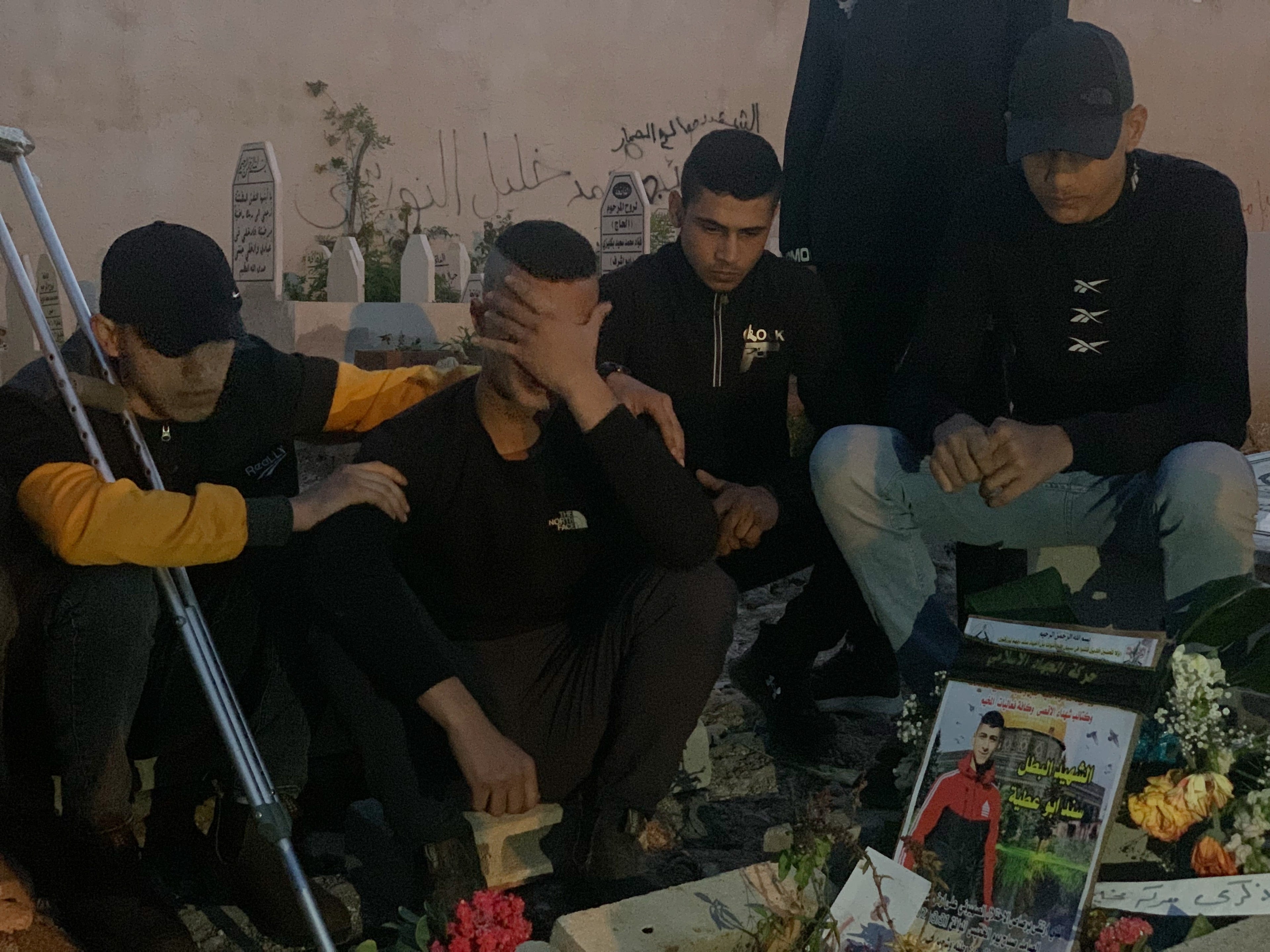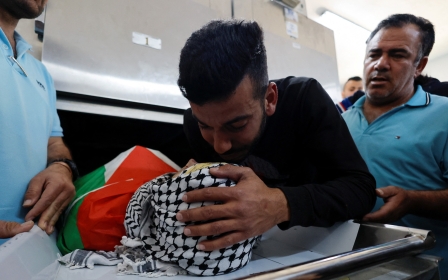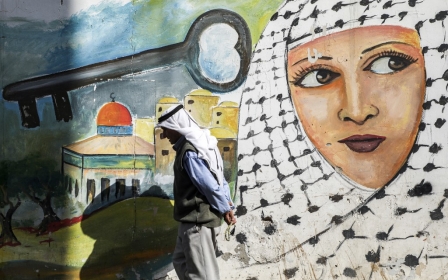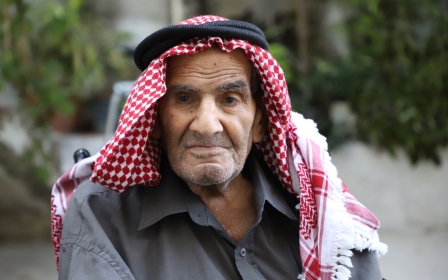The Palestinian teenage Ramadan drummer who was silenced by a lethal Israeli bullet
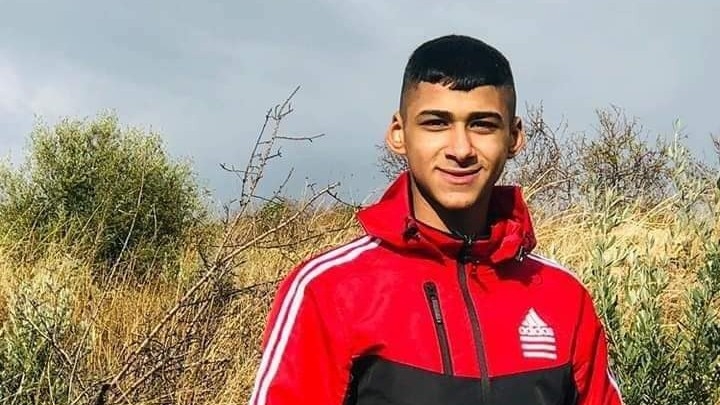
An uncharacteristically quiet and sombre atmosphere has presided over the Abu Atiyeh neighbourhood in Jenin refugee camp since the start of Ramadan.
For many years at this time, Palestinian teenager Sanad Abu Atiyeh would bang his drums and sing his wake-up chants throughout the Muslim holy month to awake people for their pre-dawn meals, or Suhor.
This year, however, Sanad could not make it to Ramadan.
On 31 March, two days before the month started, the 17-year-old was killed by the Israeli army during a raid on the camp along with 23-year-old Yazid Saadi. A video taken 10 minutes before he was shot showed him throwing rocks at an armoured army vehicle with a group of residents during confrontations.
Instead of putting up colourful decorations to welcome Ramadan, this year the children of the Abu Atiyeh neighbourhood, who Sanad was once amongst, now have to put up portraits of their slain friend on the walls of the camp.
New MEE newsletter: Jerusalem Dispatch
Sign up to get the latest insights and analysis on Israel-Palestine, alongside Turkey Unpacked and other MEE newsletters
Outside his home, Khadijah Abu Atiyeh, a neighbourhood elder in her seventies, was weeping bitterly as she told Middle East Eye stories of Sanad.
"He wasn't just a loss to his family, but to every family in the neighbourhood. We miss him at every moment, we miss how he helped us and would bring joy to us in Ramadan," said Khadijah.
"Even when Sanad got a little older, he would still knock on our door and then go hide and it never bothered me, he made us laugh and made us happy. Today, no one comes knocking anymore, and no one will ask me if I need any help."
Sanad's mother, Manal Abu Atiyeh, sits at the centre of the house.
Suffering from partial memory loss and a speech impediment caused by a car accident, her recollection of what happened to Sanad is hazy.
Hadeel, Sanad's 15-year-old sister, tries to interpret her mother's slurred speech as she asks for food to be prepared for him when he is to come home or asks everyone to keep their voices down because Sanad is sleeping, or reaching for the phone to call him to rush him home.
When she does remember, the family is at a loss to console her in her grief, as she and everyone in the family burst out sobbing.
"There is no one like Sanad, he was polite and mild-mannered, and kind-hearted," Hadeel, speaking through her tears, told MEE.
"He was affectionate towards everyone, and everyone in the camp loved him."
Defending the camp
An hour before his death, Sanad was with his family, watching as the Israeli army raided the camp. When a group of residents went out to defend the camp and confront the soldiers, he decided to join them.
"My father and I tried to stop him, but he lied and told us that he was going to go buy us hummus and falafel. He went and never came back," said Hadeel.
Since a young age, Sanad, who dropped out of school to support his family working at a bakery, had been vocal in his activism against the occupation.
Three months earlier, his father was called in by the Israeli army who threatened him saying that they would arrest Sanad for some Facebook posts they deemed "inflammatory."
Shortly after, Sanad was arrested by the Palestine Authority (PA) security forces but was released on the same day after pressure from the family.
'My father and I tried to stop him, but he lied and told us that he was going to go buy us hummus and falafel. He went and never came back'
- Hadeel Abu Atiyeh, Sanad's sister
His aunt, Nisreen Abu Atiyeh, who took care of Sanad after his mother's injury, told MEE that Sanad was deeply affected by the occupation and the heightened tensions that Jenin refugee camp has witnessed in the last year.
"Sanad always participated in all of the rallies and confrontations with the army. We tried to stop him, to go after him, always. But he would just run away, and he was injured several times by rubber bullets."
Since the mass Palestinian protests in May last year, which coincided with Israeli aggressions in Jerusalem and Gaza, Jenin has increasingly become one of the main areas under heavy Israeli scrutiny.
With a reemerging presence of armed resistance fighters in its fortified refugee camp, the city has been subjected to a joint Israel-PA security campaign and multiple deadly raids by the army.
At least 17 Palestinians from the Jenin district have been killed by Israeli troops since May.
In late December, the Israeli armed forces Chief of Staff Aviv Kochavi said in an interview with Channel 12 that Israel was on the cusp of launching a major operation in Jenin.
The Israeli escalation took a turn for the worse in recent weeks, after two Jenin residents carried out attacks in Israeli cities on 29 March and 7 April, killing a total of eight people.
Israel has ramped up its raids in the city as a result, killing Palestinian fighters and civilians, and mapping out the homes belonging to relatives of those who carried out the attacks in Israel, ahead of looming demolitions.
Sanctions were also imposed on the city, with traders and relatives banned from entering or leaving Jenin.
'One soul divided in two'
On the first night after his death, Sanad's friends gathered around his grave, not wanting to leave him alone. At first, there were five mourners, but more and more kept coming until around 30 people were gathered around to remember and mourn him. Everyone wanted to tell their fondest memories of him.
"Whenever the army raided the camp and someone was killed, we always comically told ourselves that it must be Sanad," said one of his closest friends Sami Zuweid, 16, barely able to hold back his tears.
"Rumours of his death spread twice before, but this time it became a reality, and a bitter one."
The pair last met a day before Sanad was killed. He told Sami of his plans to start a new job at a sweets bakery in Jenin, to better help the family.
"We were not simply friends, but twin brothers," Zuweid said. "Ours was one soul divided in two, we were alike in everything, and spent all our time together."
As the neighbourhood mesaharatis, the Suhor drummers, Sami and Sanad, were particularly busy in Ramadan.
"We would wait for Ramadan eagerly, and we would prepare for it in anticipation," said Zuweid. "Today, Ramadan passes us in sadness, because Sanad isn't with us to experience everything we've gotten so used to sharing with him."
Eventually, mourners leave the grave and only Zuweid is left behind, struggling to end the countless stories he has yet to finish telling his friend.
Middle East Eye delivers independent and unrivalled coverage and analysis of the Middle East, North Africa and beyond. To learn more about republishing this content and the associated fees, please fill out this form. More about MEE can be found here.


